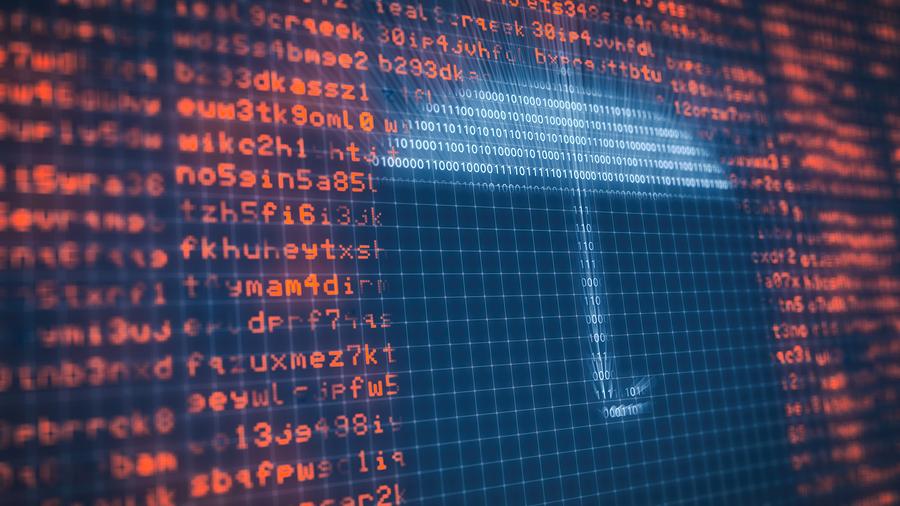Understanding the Role of Data Destruction in Strengthening Cyber Security Defenses
Understanding the Role of Data Destruction in Strengthening Cyber Security Defenses
Blog Article
The Crucial Nature of Information Devastation in Upholding Computer Safety Providers and Protecting Versus Unauthorized Accessibility
In a period where information violations and identification burglary are significantly common, the significance of reliable data damage can not be overstated. Organizations needs to recognize that the failure to correctly throw away sensitive details poses not only legal and financial threats yet additionally a possible disintegration of client count on. Various methods, from information cleaning to physical damage, work as essential safeguards against unauthorized accessibility. Comprehending the implications of information destruction practices and conformity with laws elevates crucial concerns regarding the competence of present methods and their long-lasting feasibility in the face of evolving dangers.
Importance of Data Devastation
In an increasingly electronic world, the value of data devastation can not be overemphasized. As companies accumulate substantial quantities of sensitive details, the possible consequences of falling short to correctly dispose and handle of that information come to be increasingly extreme. Data breaches, identity burglary, and company espionage position considerable threats, emphasizing the need of reliable information damage techniques.

Moreover, as modern technology develops, so as well do the approaches by which malicious actors look for to exploit sensitive details. Organizations has to continue to be aggressive and attentive in their data damage approaches to guard against these developing risks. By prioritizing data devastation, companies not only secure their properties yet also foster depend on amongst stakeholders and clients, demonstrating a dedication to accountable information monitoring and safety and security practices.
Approaches of Effective Information Destruction
To make certain the irreversible and complete devastation of sensitive information, organizations can use a variety of reliable techniques tailored to their certain requirements. One of one of the most usual techniques is information cleaning, which involves using specialized software application to overwrite existing information multiple times, making healing virtually impossible. This is specifically beneficial for solid-state drives and difficult drives, where traditional deletion techniques are inadequate.
One more effective strategy is degaussing, which utilizes strong magnetic fields to interrupt the magnetic domain names on storage space media, rendering the data irretrievable. This technique is specifically matched for magnetic storage space gadgets, such as disk drive and hard disks.
Physical damage is additionally a practical option, entailing the shredding, squashing, or incineration of storage space tools. This approach warranties that data can not be recouped, making it optimal for organizations managing highly sensitive info.

Compliance With Data Defense Laws
Organizations should not just concentrate on efficient information damage techniques however also guarantee conformity with data security guidelines that govern exactly how delicate details is handled and taken care of. Following these policies is necessary for safeguarding personal data and keeping client count on. Regulations such as the General Information Protection Guideline (GDPR) in the European Union and the Health And Wellness Insurance Coverage Portability and Liability Act (HIPAA) in the United States impose stringent standards on data management, that include needs for the safe and secure disposal of delicate details.
To attain compliance, organizations need to implement thorough data devastation plans that align with these lawful frameworks. This includes recognizing information that calls for devastation, establishing protocols for protected methodsâEUR" such as shredding physical media or using software program that satisfies industry standards for data wipingâEUR" and maintaining thorough documents of devastation tasks. Routine audits should be performed to ensure adherence to these plans and to recognize any type of possible locations for improvement.
Failure to abide by information protection laws can bring about substantial legal implications, including hefty penalties and damage to an organization's online reputation. Incorporating conformity right into data devastation methods is not just a legal commitment but also an important element of a durable details protection approach.
Effects of Poor Data Handling
Poor information description handling can bring about extreme repercussions that prolong beyond prompt functional troubles. Organizations might face significant financial losses because of information breaches, which commonly result in expensive remediation initiatives, lawful costs, and regulatory penalties. These economic ramifications can hinder and strain sources growth, eventually affecting a company's lower line.
In addition, bad information handling can severely harm an organization's reputation. Companions, stakeholders, and clients might lose trust in an entity that stops working to safeguard sensitive info, bring about reduced customer loyalty and prospective loss of company opportunities. This erosion of count on can take years to rebuild, if it can be restored at all.
In addition, companies might face lawful ramifications arising from non-compliance with information protection regulations. Such infractions may lead to fines and investigations, compounding the economic concern and additional tainting the organization's photo.
In the world of cybersecurity, poor information administration practices can create susceptabilities that make systems more prone to unauthorized access and cyberattacks. Inevitably, these consequences emphasize the important significance of applying durable information dealing with procedures to secure sensitive details and keep organizational integrity.
Finest Practices for Secure Information Disposal


Firstly, information should be categorized according to its sensitivity. Delicate details needs a lot more extensive disposal methods, such as shredding physical records and using advanced software application for electronic data wiping. Employing licensed data destruction services guarantees compliance with industry regulations and requirements.
Secondly, organizations must apply an information disposal policy that mandates normal audits. This plan must detail the treatments for data retention and damage, guaranteeing that obsolete data is dealt with without delay and securely. Educating employees on these protocols is necessary to promoting a culture of safety and security understanding.
Last but not least, maintaining comprehensive records of disposed data improves responsibility and offers a clear audit path. This click reference paperwork needs to consist of the sort of data destroyed, the technique made use of, and the date of disposal.
Verdict
In verdict, the vital of efficient information devastation is obvious in its role in enhancing computer system security services and mitigating unauthorized access dangers. Taking on durable approaches such as information cleaning, degaussing, and physical damage, alongside conformity with laws like GDPR and HIPAA, is necessary for protecting sensitive details. Disregarding proper data disposal practices can bring about severe repercussions, consisting of data violations and legal effects. Executing best practices in safe and secure information disposal inevitably strengthens organizational integrity and customer count on.
In a period where data violations and identity theft are significantly prevalent, the importance of efficient information damage can not be overemphasized. data destruction. Data violations, identity theft, and business espionage posture significant dangers, underscoring the necessity of effective data devastation practices
Compliance with regulations such as GDPR and HIPAA mandates that organizations implement stringent data security steps, including the protected damage of data at the end of its lifecycle.
By prioritizing data damage, business not only secure their properties yet also foster count on among customers and stakeholders, showing a commitment to liable information monitoring and security methods.
Organizations have to not only concentrate on reliable data damage approaches however likewise guarantee compliance with information protection policies that govern exactly how delicate details is managed and disposed of.
Report this page